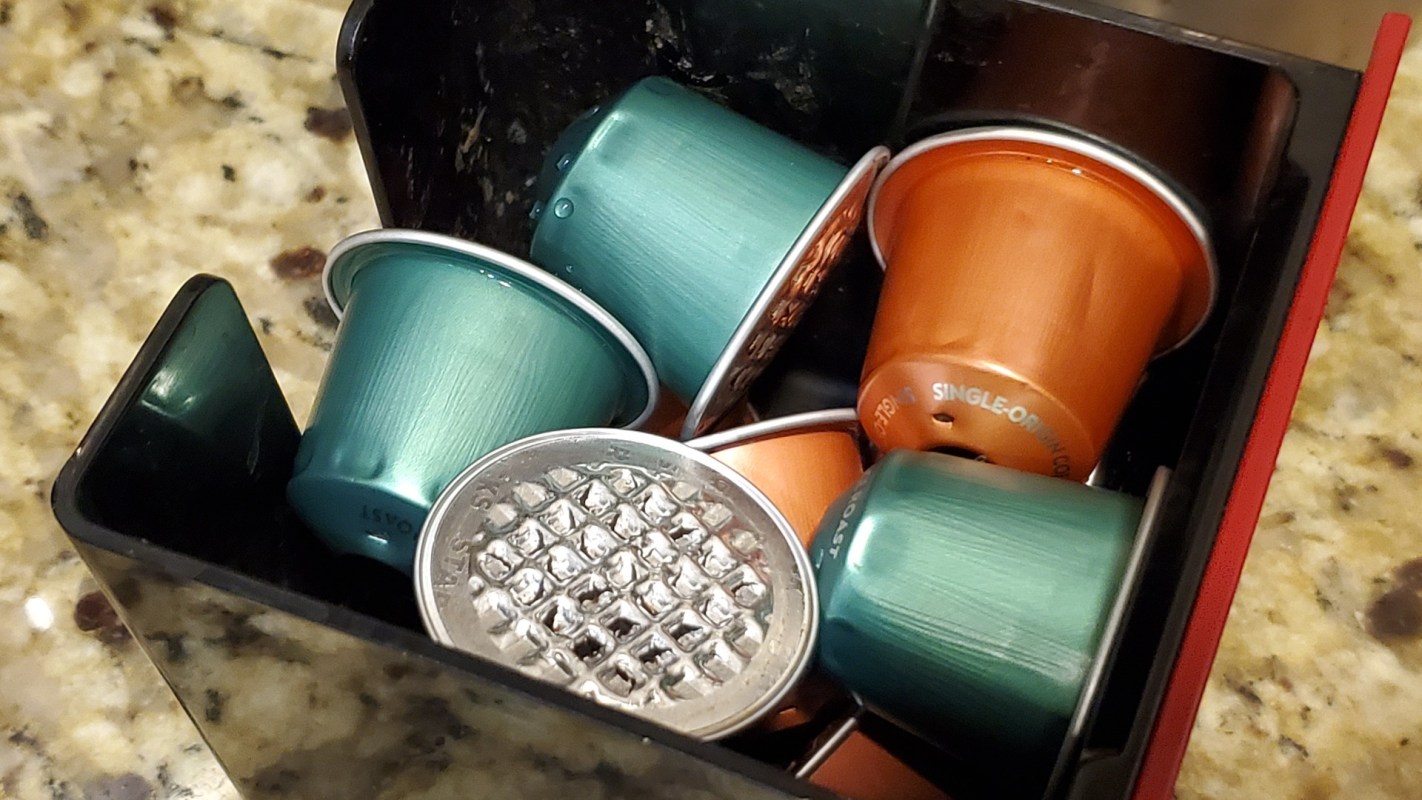Coffee giant Nespresso has unveiled a new compostable range of coffee capsules that are made of paper.
Using technology developed by fiber solution startup Huhtamaki, the packaging incorporates a paper pulping process and a biodegradable biopolymer lining. This keeps the coffee from oxidizing during transit, in storage, and when it's placed in a coffee machine. This capsule can then be disposed of both in the home and at industrial composting facilities.
🗣️ When you think about a product's packaging, which of these factors is more important to you?
🔘 The way it looks 😍
🔘 The information it provides 🧐
🔘 The amount of waste it produces 🗑️
🔘 I don't think about packaging at all 🤷
🗳️ Click your choice to see results and speak your mind
In France, where Nespresso is debuting the capsules on a trial basis, customers can also throw them into public biowaste bins. Forbes reported in September that the trials had begun rolling out there and in Switzerland. There is no word yet on when to expect these to become more widely available across Europe or other countries.
Some of Nespresso's capsules are already made out of 80% recycled aluminum, which can be recycled yet again at an aluminum recycling collection point. According to Nespresso, there are more than 100,000 of these facilities across 70 countries.
But even though an estimated 90% of their customers have access to these recycling points, not all are aware that the aluminum capsules are recyclable, Nespresso CEO Guillaume Le Cunff told Reuters.

Having coffee capsules that can be composted at home would make cutting waste more convenient for consumers.
More than 40% of U.S. households now own some kind of coffee pod machine and coffee pod sales increased from 1.8 million units in 2008 to 20.7 million by 2018.
All this creates a lot of waste. An estimated 29,000 coffee capsules currently end up in a landfill each month. If they are made out of plastic, they can take up to 500 years to decompose.
Developing a compostable material to make coffee capsules will only help to make this popular drink more environmentally friendly.
"Since becoming a B Corp earlier this year, we're more committed than ever to widening the sustainable choices we offer our consumers," Le Cunff said in a statement, referring to a certification of sustainability by B Lab, the B standing for "benefit for all."
"This is about yet another sustainable choice, without compromising on quality," Le Cunff said.
"We see the development of this technology as a game changer in sustainable packaging," Thomasine Kamerling, Huhtamaki's executive vice president for sustainability and communications, told Packaging Europe. "It offers both high levels of sustainability and functionality, opening up a range of possibilities to replace other materials such as rigid plastics."
Join our free newsletter for cool news and actionable info that makes it easy to help yourself while helping the planet.









